Biting down on the eastern subterranean termite
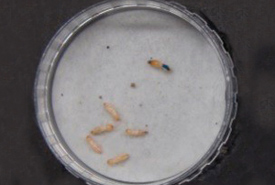
Petri dish trials to examine behaviour patterns in eastern subterranean termite populations. (Photo by Vicki Simkovic)
Watching a termite farm through a glass aquarium is fascinating, as you peer into the life of a mysterious species whose activities are normally hidden from view. Workers can be seen excavating tunnels, using their jaws to move soil grain by...
Open your ears to conservation
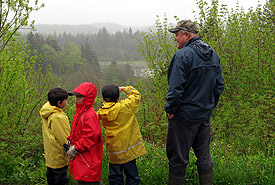
Listening to bird songs, Warbler Alley, Brooms Brook, Codroy Valley, Newfoundland and Labrador (Photo by NCC)
There are many ways to be green. Whether you do so by recycling, minimizing your carbon footprint or cleaning up and restoring land, every day we can all discover more ways to help combat climate change. One way Canadians can do their part is...
How we can save our songbirds
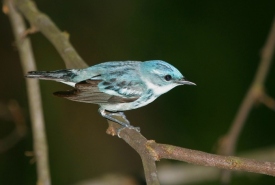
Cerulean warbler (Photo by Bill Hubick)
By now, I'm hoping that many of you have heard about declining songbird populations and the numerous threats that these birds face, which are, typically, physical threats to their survival. However, I’d like to discuss a different type of...
Natural Continuities: Connecting to nature through photography
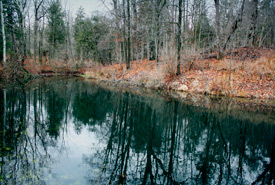
Looking out over a pond at the MacMillan Nature Preserve. (Photo by Sara Schiavello)
This month, our class from Mr. Senisi’s Grade 12 photography class at St. Jean de Brebeuf Catholic High School in Woodbridge, Ontario, hosted a photography exhibit called Natural Continuities: A Photography Exhibit in Honour of Lyn...
Saving our planet: 10 good news conservation stories from 2016
The choices we make about our planet in the next decade are going to impact nature and the well-being of people for generations to come. Both nature and human well-being face some big challenges. Biodiversity continues to be threatened by habitat...
Leaving a lasting legacy with conservation
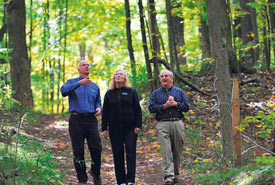
Paul Smith (right) takes a walk through the forest he transferred to NCC, with Karen Clarke-Whistler, chief environment officer of TD Bank Group, and John Lounds, NCC president and CEO (Photo by Simon Wilson)Paul
When Paul Smith was a child, he called the family’s forest, located three to four miles from his home, “Grandma’s Woods.” Deeded to his ancestors in 1856, it had passed to his grandmother, and he remembers that she had just...
Beech bark disease in Canada
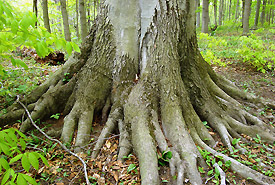
Roots of an old American beech tree at Clear Creek Forest (Photo by NCC)
While hiking through some of Ontario’s forests, you may notice that the beech trees look infected by something. During my undergraduate studies in biology at Western University (formerly known as the University of Western Ontario), I learned...
Need to ID a plant in Nova Scotia? There's an app for that!
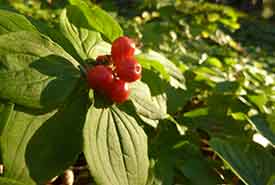
Bunchberry (Photo by NCC staff)
Those red teaberries look so yummy, but can I eat them? What can I collect to make tea? What goes well in a salad? These questions and more may be answered for you in a recently released app created by developer Gordon Isnor and me, curator of...
An ode to whale (Part One)
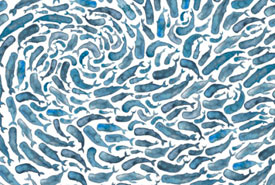
Sperm whales (Illustration by Elena O'Neill)
royalty’s fish / radiating into the night / to fathoms and float / (Inspired by Moby Dick) Facts: I’ve been reading Herman Melville’s Moby Dick during my lunches. Needless to say, this book is markedly different from my...
A two-for-one solution for climate change
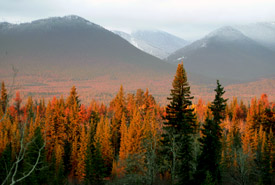
Ogilvie sunset on forest, BC (Photo by NCC)
A wide recognition of the acceleration of climate change and its impacts – increasing incidents of extreme weather events among them – has triggered a range of actions across Canada. Government, corporations, academia and non-profit...

